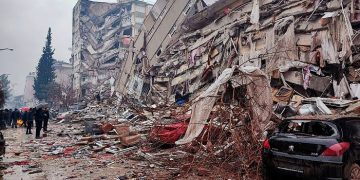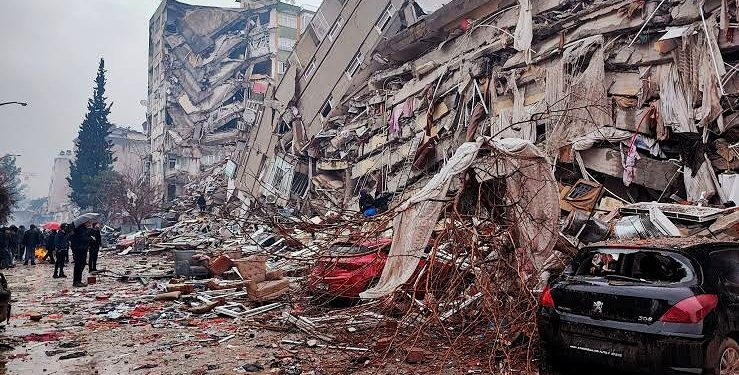By John Ikani
Two massive earthquakes are reported to have killed more than 2,300 people and wounded thousands more in Turkey and Syria – with experts warning the death toll is likely to rise sharply.
The magnitude 7.8 tremor struck overnight near the city of Gaziantep, and was felt nearly 1,000km away in Cairo, leaving a huge trail of destruction in Turkey and Syria, where many remained trapped below rubble as a second 7.5 magnitude earthquake then hit just hours later.
Dozens of aftershocks were recorded following the quake with officials urging people not to enter damaged buildings due to the risks.
In a statement carried by the state-run Anadolu Agency, Turkey’s Disaster and Emergency Management Authority (AFAD), listed the affected regions so far as Kahramanmaras, Gaziantep, Sanliurfa, Diyarbakir, Adana, Adiyaman, Malatya, Osmaniye, Hatay and Kilis.
Thousands more have been affected across the border in the Syrian provinces of Aleppo, Idlib, Hama, and Latakia.
Turkey is in one of the world’s most active earthquake zones. Monday’s 7.8 magnitude earthquake is the most powerful to hit the country since 1999.
In August 1999, a powerful magnitude 7.6 earthquake shook Marmara, a densely populated region to the south of Istanbul, Turkey’s largest city, for 45 seconds. Within days, the official death toll stood at 17,500.
Meanwhile, International pledges of emergency aid have poured in for Turkey and Syria, leading to calls for the international community to relax some of the political restrictions on aid entering north-west Syria, the country’s last rebel-held enclave and one of the areas worst hit by the earthquake.
With the support of Russia at the UN, the government in Damascus allows aid to enter the region through only one border crossing. The Syrian Association for Citizens Dignity said all crossings must be opened on an emergency basis.
The crisis is likely to be a test of whether a divided international community riven by the war in Ukraine and conflicts in the Middle East can temporarily bury its differences in the interest of addressing a humanitarian emergency.
Source: Agencies



































